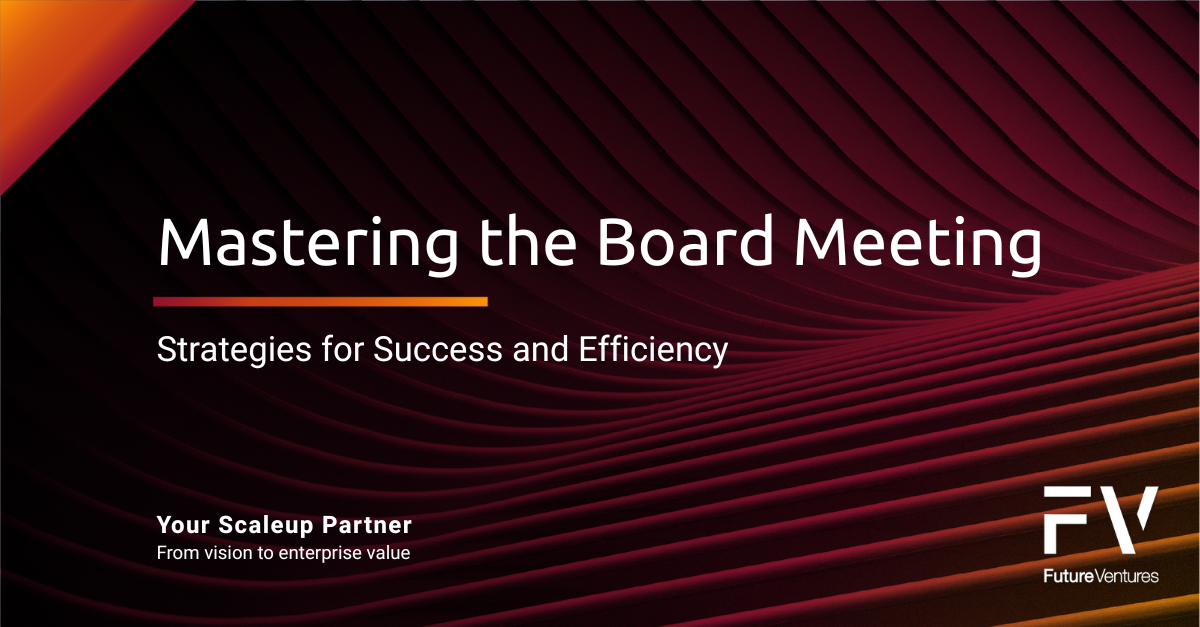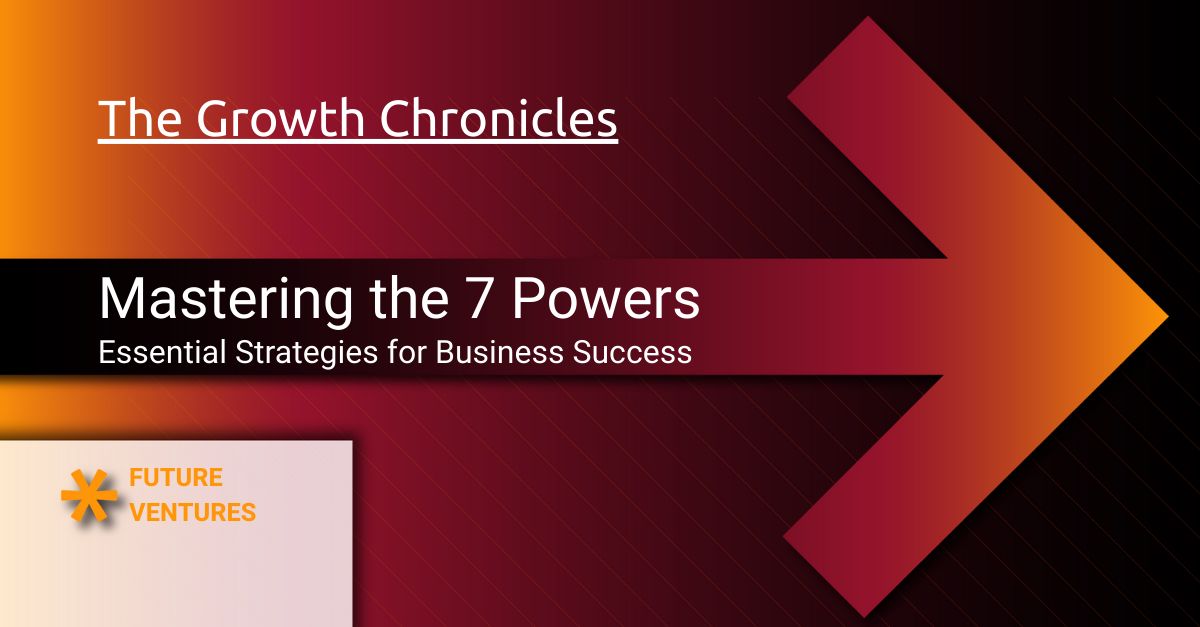Mastering Growth with a Strategic Business Coach: Your Brutal Advantage in the Scale-Up Wars
The Uncomfortable Truth About Scaling
85% of venture-backed companies never return capital to investors. Not because the founders lack intelligence or grit, but because scaling a company requires a fundamentally different operating system than starting one.
Many entrepreneurs and executives struggle with decision-making and team management, which hinders business growth. These struggles often include uncertainty, leadership hurdles, and challenges with team cohesion that can stall scaling efforts. Executive coaching enhances emotional intelligence in leaders, helping them navigate these challenges more effectively. Welcome to the valley where good companies go to plateau.
This is where a strategic business coach becomes less a luxury and more a survival tool.
Strategic Business Coaching helps business owners streamline operations to achieve sustainable growth, ensuring they can transition effectively from startup to scale-up. It also guides business owners in translating their strategic goals into actionable plans that drive real results.
This in-depth guide covers everything you need to know about strategic business coaching, including what it is, how it differs from other coaching types, the tangible value it provides, pricing expectations, and how to build a successful coaching relationship. You'll also discover insights on executive coaching, leadership development, human resources management, and emerging trends shaping the future of business coaching.
What Actually Is a Business Strategy Coach? (And What They're Not)
Let’s clear the smoke first. A strategic business coach isn’t:
- A consultant who parachutes in with a 47-slide deck
- A therapist for your entrepreneurial anxiety (though that’s a side benefit)
- Someone who’ll do the work for you
- Your yes-person or cheerleader
A strategic business coach is your cognitive sparring partner with scar tissue. Their extensive coaching experience is crucial for providing valuable insights and practical guidance. They’re the person who’s seen your movie before, the good version and the horror show version, and can help you avoid the predictable plot holes.
Executive coaching increases confidence in decision-making. One-on-one coaching relationships are designed to help business owners grow with clarity, providing tailored insights that align with their unique challenges. Strategic business coaches also serve as trusted advisors, supporting leaders through complex decisions and growth.
Think of it this way: When Roger Federer was dominating tennis, he still had a coach. Not because he didn’t know how to hit a backhand, but because mastery requires an external perspective that sees the patterns you’re too close to notice.
Key differentiators of strategic business coaches include their ability to provide tailored guidance, leverage emotional intelligence, and deliver results based on deep coaching experience.
The Three Tiers of Business Coaching
| Coach Type | Focus Area | Typical Client | Core Value |
|---|---|---|---|
| Generalist Business Coach | Broad business fundamentals, motivation, basic strategy | Early-stage founders, solopreneurs | Clarity and confidence-building |
| Strategic Business Coach | Growth strategy, operational scaling, market positioning | Scale-up CEOs ($1M-$50M revenue) | Pattern recognition from experience |
| Executive Coach | Leadership development, C-suite effectiveness and organizational culture | Established CEOs, executives | Behavioural transformation and presence |
Key Insight: Different growth stages demand different coaches; the one who got you from zero to one won’t scale you from 50 to 500 employees. Don’t make the rookie mistake of sticking with yesterday’s coach when your business needs a new altitude.
What Does a Strategy Coach Actually Do? (The Unromantic Reality)
Pondered strategic coaching’s tangible value and practical insights.
Forget the mystical guru imagery. Here’s what actually happens: Expert coaching provides the roadmap needed for sustainable business success, offering actionable strategies and frameworks that drive meaningful results. Coaching can have an immediate impact on business performance, delivering quick, measurable improvements. Workshops are hands-on sessions that solve real business problems, providing practical tools and insights while introducing fresh ideas that drive innovation and transformation. A clear growth strategy streamlines operations and ensures business success.
1. They Force You to Stop Operating in Your Business Long Enough to Work On It
Your calendar is a perfect reflection of your priorities, not your intentions. A strategic coach creates a mandatory space for strategic thinking, usually 2-4 hours per month, where you're legally obligated to think about the business as a system, not just fight fires.
This alone is worth the fee. When was the last time you spent four uninterrupted hours thinking about where your company will be in 18 months?
2. They Ask the Questions You're Avoiding
- “Your burn rate says 14 months of runway, but your sales cycle is 9 months. What’s the plan?”
- “You’ve promoted three friends to VP. Which one isn’t working?”
- “Your product roadmap requires 12 engineers. You have 4. Which features are you killing?”
Leaders often face challenges when lacking clarity, especially when making tough decisions under pressure. A coach helps address this issue by asking direct questions that cut through uncertainty.
Good coaches have permission to be uncomfortably direct because they’re not on your board, they’re not an employee you might fire, and they’re not trying to get into your next round.
3. They Translate Your Chaos into Frameworks
You're drowning in complexity. They've seen your specific flavour of chaos before and have mental models for it:
- Is this a product problem, a go-to-market problem, or a founder-market fit problem?
- Are you optimizing for growth, profitability, or optionality?
- Is this a hiring problem or a clarity problem masquerading as a hiring problem?
4. They Provide Pattern Recognition at Scale
The best strategic coaches have worked with 50 or more companies at similar stages. They know:
- What "good" looks like at your revenue level
- The warning signs that appear 6 months before things break
- Which problems actually matter versus which are just noise
The Strategic Leverage Matrix
This is the framework they'll actually use to help you prioritize your efforts and resources effectively. It guides you in focusing on high-impact activities where you excel, while addressing critical weaknesses strategically.
| High Impact | Low Impact | |
|---|---|---|
| You're Good At | DELEGATE (free yourself) | ELIMINATE (don't confuse motion with progress) |
| You're Weak At | HIRE/COACH FOR (critical gap) | IGNORE (not every weakness matters) |
Key Insight: This simple 2x2 has probably saved more scale-ups than any pitch deck template.
5. They Hold You Accountable to Your Own Strategy
You told yourself Q3 was about enterprise sales. It’s now Q4 and you just launched two new SMB features. A coach’s job is to replay your words back to you and ask: “What changed, or did you just get distracted?” A coach also helps you set goals and stay accountable to them, ensuring you remain focused on your objectives.
Accountability without judgment. Data without drama.
Executive Coaching for Leadership Development: Unlocking Your Next-Level Potential
The difference between a good leader and a great one isn’t just hustle: it’s the willingness to invest in your own evolution. Executive coaching isn’t a luxury for Fortune 500 CEOs; it’s the secret weapon for any business owner or executive who wants to unlock next-level potential and drive real business growth.
A seasoned executive coach brings more than just pep talks. They deliver clarity: helping you see your blind spots, sharpen your vision and develop actionable strategies that move the needle. Leadership development isn’t about attending another workshop or reading the latest business book; it’s about building the leadership skills that actually translate into better team performance and long-term success.
Executive Coach vs. Strategic Business Coach: Understanding the Difference
| Aspect | Executive Coach | Strategic Business Coach |
|---|---|---|
| Primary Focus | Personal development and leadership skills | Business growth and operational scaling |
| Key Areas of Improvement | Executive presence, emotional intelligence, decision-making | Team leadership, strategic roadmaps and actionable strategies |
| Typical Clients | Individuals or executive teams | Business owners and leaders managing growth and transitions |
| Approach | Behavioural transformation within an organizational context | Pattern recognition from extensive coaching experience |
| Goal | Enhance leadership performance and confidence | Align business goals with long-term success |
| Accountability | Focus on personal and leadership development goals | Hold clients accountable to business objectives |
Quick Checklist: Choosing the Right Coach for Your Needs
- Need to improve your leadership presence and emotional intelligence? → Executive Coach
- Looking to develop actionable growth strategies and scale your business? → Strategic Business Coach
- Want personalized support for decision-making within your role? → Executive Coach
- Need guidance on aligning your team and business goals for long-term success? → Strategic Business Coach
- Seeking behavioural change to enhance your executive effectiveness? → Executive Coach
- Require pattern recognition to navigate critical business transitions? → Strategic Business Coach
Understanding these distinctions helps you select the coaching partner best suited to your unique leadership and business challenges.
Understanding these distinctions ensures you engage the right coaching partner for your unique business and leadership needs.
Human Resources Management: Building the Team That Scales
Your business will only scale as far as your team can take it.
Human resources management isn’t just about payroll and policies. It’s about building a culture and a team that can outpace the competition. This is where a business coach or executive coach becomes your unfair advantage.
Expert guidance in HR management means you’re not just filling seats. You’re building a high-performance engine. A great coach helps you focus on team leadership, communication, and accountability, ensuring your business attracts, retains, and develops top talent. The result? A work environment that fuels innovation, engagement, and relentless growth.
Creating a Business Plan: From Vision to Execution with a Strategic Coach
Let’s cut through the noise: a business plan isn’t just a document for investors; it’s your strategic roadmap from vision to execution. And working with a strategic coach can make all the difference between a plan that gathers dust and one that drives real results.
A business coach brings expert guidance to the table, helping business owners craft a business plan that’s not just ambitious but also actionable. Together, you’ll zero in on key areas for growth, refine your marketing strategy, and develop a business model designed for long-term success. Strategic planning isn’t a one-and-done exercise; it’s an ongoing process of focusing, adapting, and executing with discipline.
The Money Question: What Should You Actually Pay?
The business coaching industry has a pricing problem: it ranges from $500/month life coaches on Instagram to $50K/month executive coaches for Fortune 500 CEOs.
Strategic business coaches offer a range of services, including coaching, training, and strategic guidance, designed to drive business growth and help clients achieve their goals.
Strategic Business Coach Pricing (2025 Market Rates)
| Experience Level | Monthly Retainer | Hourly Rate | What You Get |
|---|---|---|---|
| Emerging Coach (2-5 years) | $2,000 - $5,000 | $200 - $400 | 4 sessions/month, email support |
| Established Coach (5-10 years) | $5,000 - $12,000 | $400 - $800 | Weekly sessions, strategic planning, board prep |
| Elite Coach (10+ years, proven exits) | $12,000 - $30,000+ | $800 - $1,500+ | Unlimited access, network introductions, operational involvement |
The ROI Calculation Nobody Does (But You Should)
Here’s the math that matters:
Scenario: You’re a $5M ARR SaaS company growing 80% YoY. You hire an $8,000/month strategic coach.
Cost: $96,000 annually
Question: Can this coach help you:
- Avoid one bad executive hire? (Average cost: $150K+ in salary + severance + opportunity cost)
- Improve customer retention by 5%? (On $5M ARR = $250K impact)
- Help you raise your Series A 3 months faster? (Saved burn + better terms = $200K-500K)
- Prevent one strategic pivot that would cost 6 months? (Team time + opportunity cost = $300K+)
If they help you do even ONE of these things, the ROI is absurd. In fact, many companies report significant improvements in performance and ROI after engaging in business coaching programs.
The Uncomfortable Truth: Most founders spend more time negotiating their office furniture contract than evaluating coaching options. Optimize for what actually moves the needle. Seek out someone that you have chemistry with, has the right experience and has the core skills (listening, questioning, etc.) to help you scale.
How Much Do Business Coaches Actually Make? (The Inside View)
Since we're being transparent, let's look at the other side of the table.
The Business Coach Economics
Sustainable Practice Model:
- 10-15 active clients (more is unsustainable, fewer is risky)
- $6,000 average monthly fee
- Annual revenue: $720K - $1.08M
- After expenses (25-30%): $500K - $750K take-home
Why This Matters to You: The best coaches are selective. They're turning away clients. If a coach is desperate for your business, that's a signal. If they're selective and have a waitlist, that's also a signal (usually a better one).
The top 5% of strategic business coaches (those who've helped companies achieve successful exits and have extensive operator experience) can earn $1M+ annually, but this is rare and hard-won.
Building Your Coaching Relationship: The 90-Day Onboarding
Most coaching relationships fail within the first 90 days, not because of incompetence, but due to misaligned expectations. A strong coaching relationship not only supports individual growth but also drives positive change throughout the entire organization, enhancing culture, engagement, and overall performance.
Here’s how to avoid that:
Phase 1: Foundation (Weeks 1-4)
Your Job:
- Complete a comprehensive business audit
- Share your full financial model
- Be vulnerable about what’s not working
- Share insights about your business's unique challenges and opportunities
Their Job:
- Listen more than talk
- Identify patterns and gaps
- Build trust through insight, not advice
Phase 2: Strategy Development (Weeks 5-8)
Collaborative Output:
- 12-month strategic roadmap
- Key performance indicators that actually matter
- Communication rhythm (weekly? bi-weekly? async?)
Phase 3: Implementation Support (Weeks 9-12)
Focus:
- Accountability to the plan
- Course correction based on early signals
- Identifying next-level challenges before they metastasize
Red Flag Check-In Question at Day 90: "What specifically has changed in my business or my thinking because of our work together?"
If you can't answer this clearly, something's broken.
The Four Conversations Every Strategic Coach Should Drive
1. The "Where Are We Actually Going?" Conversation
Most founders confuse activity with direction. A strategic coach asks the right questions: What does success look like in 36 months? What has to be true to get there?
For an entrepreneur, working with a coach helps clarify the long-term direction, ensuring every decision aligns with their unique business goals and personal growth.
Not vision board nonsense. Specific, measurable outcomes:
- Revenue and profitability targets
- Market position
- Team structure
- Your own role (because it should evolve)
2. The "What Are We Not Doing?" Conversation
Strategy is subtraction. Every "yes" comes with hidden "no's." Your coach should help you:
- Kill initiatives that don't serve the core strategy
- Say no to appealing distractions (partnerships, features, markets)
- Protect your team's focus like it's your only asset (because it kind of is)
3. The "Who Needs to Grow or Go?" Conversation
The team that got you here won’t get you there. This is painful and true. A good coach helps you:
- Identify gaps in your leadership team before they’re critical
- Coach up high-potential team members
- Make necessary personnel changes faster (the “too slow to fire” problem costs you months).
- Identify gaps in your leadership team before they’re critical
- Coach up high-potential team members
- Make necessary personnel changes faster (the “too slow to fire” problem costs you months)
4. The "What's the Failure Mode?" Conversation
Pre-mortem thinking: Imagine that it's 18 months from now. The company has failed. What would have caused that to happen?
- Ran out of money before hitting milestones?
- Lost key customers due to product gaps?
- Team burned out or key executives left?
- Couldn't compete with a well-funded competitor?
Key Insight: Most companies die from predictable causes. A strategic coach helps you see around corners.
The Futurist Lens: Where Business Coaching Is Heading
The coaching industry is about to get disrupted by the same forces transforming everything else. Organizations are increasingly leveraging new coaching trends to drive transformation, enhance culture, and support organizational change.
Emerging Trend 1: AI-Augmented Coaching
Within 3-5 years, expect your strategic coach to arrive armed with AI tools that:
- Analyze your entire company's Slack/Teams history to identify communication patterns
- Benchmark your metrics against 1,000+ comparable companies in real-time
- Predict team burnout before it happens based on behavioural signals and semantic data
- Generate 10 strategic scenarios based on your current position
The human coach won't be replaced. They'll be augmented. The value shifts from information to interpretation, from analysis to wisdom.
Emerging Trend 2: Fractional Strategic Teams
The solo coach model is evolving. Leading organizations are pioneering the use of fractional strategic teams to drive better results. Forward-thinking founders are assembling coaching pods:
- A strategic business coach (the integrator)
- A CFO coach (financial strategy)
- A go-to-market coach (revenue growth)
- An organizational design coach (scaling culture)
Key Insight: These specialists share information and coordinate. Think of it as a fractional C-suite focused solely on your development.
Emerging Trend 3: Outcome-Based Compensation
The monthly retainer model may shift toward performance alignment:
- Base fee + equity for long-term skin in the game
- Milestone-based bonuses tied to specific outcomes
- Reverse-trial periods (try for 90 days, pay if it worked)
Key Insight: This aligns incentives better, but it requires coaches with sufficient capital to take the risk.
Emerging Trend 4: Peer Coaching Networks
The insight isn’t always top-down. Platforms are emerging that facilitate structured peer coaching among CEOs at similar stages: combining professional facilitation with collective intelligence. Businesses can leverage these peer coaching networks to foster shared learning, strategic growth, and leadership development, ultimately supporting sustainable success through community-driven support.
The Zoom Generation Effect: Your next strategic coach might be in a different country, accessed asynchronously, operating across time zones. Geography matters less; expertise matters more.
Fure Ventures Forum: Join a vibrant community of visionary entrepreneurs and business leaders. Connect, collaborate, and access exclusive resources designed to accelerate your growth journey. Ready to scale with like-minded peers and expert support? Take the first step and become part of a network that fuels meaningful change and lasting success.
Making the Hire: Your 7-Point Evaluation Framework
When you’re ready to hire a strategic business coach, use this filter. Look for a coach who demonstrates executive presence, as this quality is essential for effective leadership and can help you develop the confidence and influence needed to succeed at higher levels.
| Evaluation Criteria | Why It Matters | How to Assess |
|---|---|---|
| Relevant Operating Experience | They’ve done your job or a similar one | Ask: “What companies did you operate in, and at what stage?” |
| Pattern Recognition | They’ve seen your movie before | Ask: “How many companies like mine have you coached through Series A/B?” |
| Communication Style Fit | You’ll resist coaching if the style grates | Trial session—do they listen or lecture? |
| Strategic Frameworks | They have mental models, not just opinions | Ask: “How do you typically diagnose growth challenges?” |
| Network Access | They can make introductions that matter | Ask: “Who in your network might be relevant to our challenges?” |
| Accountability Method | They’ll actually hold you to commitments | Ask: “How do you handle clients who don’t follow through?” |
| Executive Presence | Key for leadership development and influence | Observe: Do they command respect and demonstrate confidence in your interactions? |
| References | Social proof from founders you respect | Ask: “Can I speak with 2-3 current or former clients?” |
The Chemistry Test: If you leave your first conversation energized and slightly uncomfortable, that’s a good sign. If you leave comfortable and validated, run. You don’t need an expensive yes-person.
The Bottom Line: Your Unfair Advantage
Coaching is becoming table stakes for competitive scaling companies.
The founders who will dominate the next decade aren't going at it alone. They're building personal boards of advisors, hiring coaches who've seen their failure mode before and investing in their own operating system upgrades.
Your competition already has a coach. They're probably not telling you about it because it's an edge they'd prefer to keep quiet.
The question isn't whether you can afford a strategic business coach. The question is whether you can afford to scale without one, while your competition is getting 2-4 hours per month of concentrated pattern recognition from someone who has seen your specific movie end 47 different ways.
- The Math: If you're building a $50M+ revenue company, $100K invested in coaching represents 0.2% of your outcome. If it improves your odds of success by even 5%, the expected value is massive.
- The Decision: Are you optimizing for short-term cash preservation or long-term probability of success?
Your company will plateau at exactly the same point where your personal growth plateaus. Investing in a strategic business coach is fundamentally investing in your capacity to see around corners, make fewer predictable mistakes, and scale your thinking as fast as you're scaling your business.
Key Insight: The successful founders you admire? They're already doing this. They're just not posting about it on LinkedIn.
Key Takeaways
✓ A strategic business coach provides pattern recognition, accountability, and frameworks - not cheerleading
✓ Expect to invest $5K-$12K monthly for an established coach with relevant experience
✓ The ROI compounds: One avoided mistake (bad hire, wrong pivot, timing error) pays for years of coaching
✓ The relationship works best when expectations are clear, communication is direct, and both parties commit for 12+ months
✓ The future of coaching includes AI augmentation, peer networks, and fractional strategic teams
✓ The selection process matters: Evaluate for operating experience, pattern recognition, and communication fit—not credentials alone
Your move.
Ready to Elevate Your Business?
If you're serious about scaling your business with clarity, confidence, and expert guidance, it's time to take the next step. Reach out to us today to explore how a strategic business coach can become your unfair advantage in the scale-up wars. Start a conversation that could transform your leadership, your team, and your business growth trajectory. Don’t wait! Your future success depends on the actions you take now.










